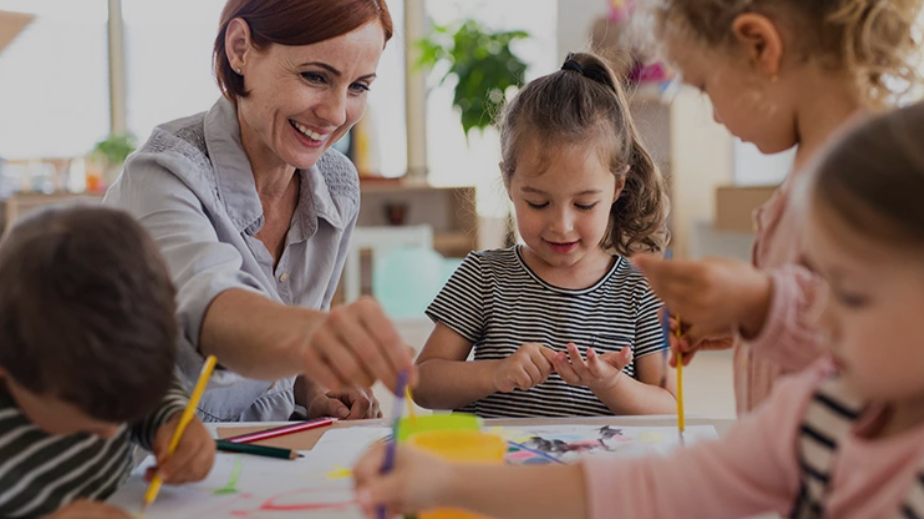Introduction to Nova Scola: A New Era in Education
In a world that’s changing faster than ever, traditional education systems are struggling to keep up. That’s where Nova Scola comes in. Latin for “New School,” Nova Scola isn’t just a catchy phrase—it represents a whole new way of thinking about how we teach, learn, and grow. Whether you’re a student, parent, teacher, or educational reformer, Nova Scola is a concept that’s gaining serious attention, and for good reason.
The global education landscape is experiencing a massive transformation. Online learning, artificial intelligence, and skills-based curriculums are just the tip of the iceberg. Nova Scola embraces all these shifts and pushes the boundaries of what education can be. Instead of clinging to outdated models, it offers a fresh, innovative path forward—one where students are creators, not just consumers of information.
This article takes a deep dive into what Nova Scola really means, how it differs from traditional schooling, and what kind of impact it could have on the future of learning. So if you’re curious about the future of education—or just tired of the old-school way of doing things—keep reading.
The Philosophy Behind Nova Scola
At its core, Nova Scola is about reimagining education from the ground up. It’s not about tweaking the current system—it’s about rebuilding it with intention. The central philosophy revolves around a few major pillars: personalization, technology integration, global awareness, and lifelong learning.
Personalization is key. In the Nova Scola model, one-size-fits-all curriculums are a thing of the past. Each student has unique interests, strengths, and goals. Nova Scola respects that individuality and designs pathways that are tailored to the learner. Whether someone excels in coding or prefers exploring art history, the curriculum adapts to them—not the other way around.
Technology plays a vital role too. Instead of treating tech like an add-on or distraction, Nova Scola sees it as a core tool. Think AI tutors, virtual reality classrooms, and blockchain-based credentialing systems. These aren’t far-fetched ideas anymore—they’re already becoming reality. Nova Scola taps into this potential to enhance learning in ways we’ve never seen before.
Then there’s global awareness. Nova Scola promotes cultural intelligence, multilingual learning, and global collaboration from an early age. In an increasingly connected world, understanding different cultures and perspectives isn’t a luxury—it’s a necessity. Nova Scola ensures students grow up not only smart but also empathetic and globally aware.
How Nova Scola Differs from Traditional School Systems
If you were to walk into a Nova Scola classroom, you’d instantly notice the difference. Gone are the rigid rows of desks, monotonous lectures, and standardized tests. Instead, imagine open spaces, project-based learning pods, and real-time feedback systems powered by machine learning.
In traditional schools, success is often measured by grades and test scores. Nova Scola flips the script. Here, competency and skill mastery take center stage. Students are encouraged to move at their own pace, mastering one skill before moving on to the next. This leads to deeper understanding and long-term retention—unlike cramming for a test and forgetting everything the next day.
Assessment is another big shift. Traditional systems focus on exams, which often reward memorization over actual learning. Nova Scola replaces that with continuous assessment, portfolio reviews, peer evaluations, and mentor feedback. The goal isn’t to pass a test but to truly understand and apply what’s been learned.
Teachers in Nova Scola environments aren’t just instructors—they’re coaches, facilitators, and mentors. They guide rather than dictate, fostering an environment where curiosity thrives. It’s a more respectful, collaborative relationship between teacher and student.
The Role of Technology in the Nova Scola Model
Technology isn’t just a tool in Nova Scola—it’s a catalyst for transformation. The model thrives on blending education with cutting-edge tech to create immersive and dynamic learning experiences.
Take Artificial Intelligence for example. AI-driven platforms can analyze a student’s learning patterns and adapt content in real-time to fit their needs. Struggling with algebra but flying through geometry? The AI adjusts accordingly, ensuring no student falls behind or feels bored.
Virtual Reality (VR) is another exciting frontier. Instead of reading about the Great Wall of China, students can take a virtual tour. Instead of watching a video about space, they can “walk” on the surface of Mars. These immersive experiences are more memorable and engaging than traditional methods.
There’s also blockchain technology, which might sound complex but has a simple function in this context: it securely records credentials and achievements. That means students can carry their verified accomplishments wherever they go—no more losing transcripts or wondering if certificates are valid.
And let’s not forget collaborative platforms. Nova Scola thrives on teamwork and global interaction. With cloud-based tools, students from different parts of the world can work on projects together, gaining valuable communication and collaboration skills along the way.
Student Empowerment in Nova Scola
One of the most groundbreaking aspects of Nova Scola is its focus on student empowerment. Instead of forcing students into rigid molds, this model nurtures autonomy, critical thinking, and creativity.
Students are given choices—real choices—about what they learn, how they learn it, and how they demonstrate mastery. Want to show your understanding of climate change through a video essay instead of a written report? Go for it. Nova Scola embraces multiple forms of expression and values creativity just as much as technical know-how.
Another empowering feature is the integration of real-world skills. Students don’t just learn theory—they apply it. Through internships, passion projects, startup incubators, and social impact campaigns, learners get to see the direct impact of their knowledge in the real world. This leads to higher engagement and a stronger sense of purpose.
And perhaps most importantly, Nova Scola helps students become self-directed learners. By teaching metacognition (learning how to learn), it prepares individuals for lifelong growth. After all, in a world where industries are constantly evolving, being a fast, flexible learner is more valuable than any single degree.
Nova Scola and the Future of Global Education
So where does Nova Scola fit in the bigger picture? Simply put, it’s a blueprint for the future of education. As societies evolve and industries shift, we need systems that can keep up—not ones stuck in the past. Nova Scola represents the next step in educational evolution.
We’re already seeing the early stages of this transition. Countries like Finland, Singapore, and the Netherlands are experimenting with flexible curriculums and tech-driven learning environments. Private initiatives and ed-tech startups are also embracing Nova Scola philosophies, creating hybrid models that mix physical and digital learning.
But the real power of Nova Scola lies in its adaptability. Whether in a remote village with limited access or a high-tech urban classroom, its principles can be scaled and customized. With the right policies and investments, Nova Scola could very well become the global standard.
It also aligns with major global goals—like the UN’s Sustainable Development Goal 4 (Quality Education for All). By prioritizing inclusion, adaptability, and lifelong learning, Nova Scola has the potential to make education not only more effective but also more equitable.
Conclusion: Why Nova Scola Matters Now More Than Ever
We’re at a crossroads. The world is changing, and education needs to catch up. Nova Scola offers a hopeful, practical, and visionary approach to learning that could shape a brighter, more capable generation.
It respects the uniqueness of every learner, leverages powerful technologies, and creates meaningful learning experiences that go beyond rote memorization. It transforms schools into vibrant ecosystems where students are active participants, not passive recipients.
Keep an eye for more latest news & updates on Daily!



